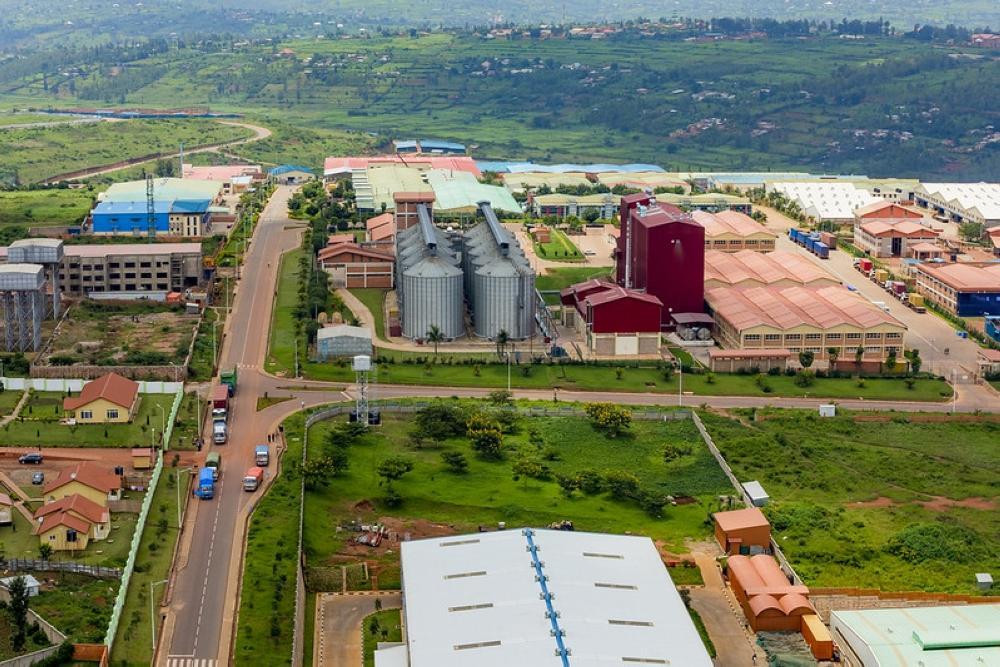Eve Tushabe Muvunyi
Africa-Press – Rwanda. In today’s volatile business environment, growth is more complex than ever. Markets are crowded, consumers are sceptical, and competitors move faster than before. Yet one truth remains. Businesses that grow sustainably understand both the science behind growth and the math behind differentiation.
Growth is no longer about luck or legacy. It’s about logic, data, and strategic clarity. Differentiation is not decoration; it’s measurable distinction in the eyes of the customer. Together, they form the foundation for business resilience in a fast-changing world, allowing enterprises to not only survive but thrive even under pressure.
The science of growth
Growth must be engineered, not assumed. It begins with knowing your core—the proven offering or customer base that keeps your business alive. The most successful enterprises strengthen this core before exploring new opportunities. For instance, a local retailer might first ensure its most popular products are stocked, priced fairly, and consistently delivered before introducing new product lines.
Too many companies chase trends while neglecting what works. Real growth starts with improving efficiency, deepening loyalty, and driving repeat engagement. From that base, businesses can expand into new products, categories, or geographies.
Growth as a science is measurable, testable, and adaptable. Structured growth balances core optimization with strategic exploration.
Without structure, resources are wasted, with insight, growth compounds over time. Companies that use pilot programmes, customer feedback loops, and performance metrics often see results scale faster than those relying on intuition alone.
The math of differentiation
While growth expands reach, differentiation defines relevance. When competitors access similar tools and technology, standing apart clearly and consistently is the only advantage.
Differentiation can be measured through brand equity, customer satisfaction, repeat purchase rates, or perceived value. At its core, it answers: why should customers choose us, and can we prove that difference consistently? Competing on price alone is a weak long-term strategy.
In practice, differentiation could mean offering personalized services, sustainable product options, or creating a brand story that resonates culturally. For example, a beverage company may emphasize locally sourced ingredients or health benefits that competitors do not highlight.
Innovation as a growth multiplier
Innovation today is a discipline, not a buzzword. It involves designing solutions for unmet needs, emerging lifestyles, and cultural shifts. Incremental improvements, like a simpler user experience, eco-friendly packaging, or faster delivery, can create new growth streams.
Innovation must be continuous: insight, experimentation, validation, and scale. Embedding it into operations builds lasting agility—the most valuable trait in uncertain markets. Companies that consistently test ideas, learn from small failures, and refine products create a culture where innovation fuels ongoing growth.
Data as the growth engine
Data-driven organizations outperform instinct-driven ones, but only when leaders ask the right questions. Data helps predict the future, detect shifting behaviours, identify profitable segments, and anticipate risks.
The best-performing businesses use data to guide both growth and differentiation. They uncover where demand will come from and understand what customers value most. For example, by analysing customer purchase patterns and feedback, a retailer can identify which products to promote, which services to improve, and where to open new locations.
Building capability, not dependency
Technology alone is not enough. Outsourcing insight or innovation weakens internal capability. True growth leaders invest in teams that understand markets, leverage analytics, and create solutions rooted in real customer insight. Internalized capability turns growth into a repeatable process rather than luck.
Investing in staff development, cross-functional training, and leadership programs ensures that knowledge stays within the company, reducing reliance on external consultants and enabling quicker, more informed decision-making.
African business context
In Africa, especially Rwanda, growth and differentiation have special significance. Local enterprises operate in dynamic, youthful markets where consumers are aspirational, digitally active, and brand aware.
To compete, companies must protect their core offerings, differentiate through authenticity, and invest in innovation ecosystems. Growth depends not just on what is sold, but how the business thinks and operates. Enterprises true to their values while adapting to consumer needs will thrive.
For instance, leveraging mobile platforms, digital payments, and localized marketing campaigns allows businesses to connect with tech-savvy consumers while maintaining a strong cultural identity.
Leadership and the growth mindset
Leadership blends creativity with analysis and ambition with discipline. Modern executives must be part scientist, part strategist—able to measure outcomes while inspiring teams.
Great leaders ask: are we growing smartly, not just quickly? Are we distinct enough to be remembered when promotions fade? These questions drive accountability and clarity, ensuring teams remain aligned with long-term objectives.
Growth and differentiation are interdependent
Growth without differentiation is unsustainable. Differentiation without growth is irrelevant. The most resilient companies see these dynamics as mutually reinforcing. Differentiation attracts customers; growth validates it. Together, they create a flywheel effect that keeps a business advancing in turbulent times.
In summary, we are in a world where trends shift overnight, survival depends on disciplined innovation and measurable distinctiveness. Growth must be pursued scientifically, grounded in data and insight. Differentiation must be proven, consistent, and defensible.
For Rwandan enterprises, this approach offers both challenge and opportunity. The challenge is to build internal systems, capabilities, and leadership maturity. The opportunity is to create brands that do not just compete locally but stand out globally.
The future belongs to those who understand that growth is earned and differentiation is engineered. Together, they form the ultimate equation for enduring business success.
Source: The New Times
For More News And Analysis About Rwanda Follow Africa-Press






